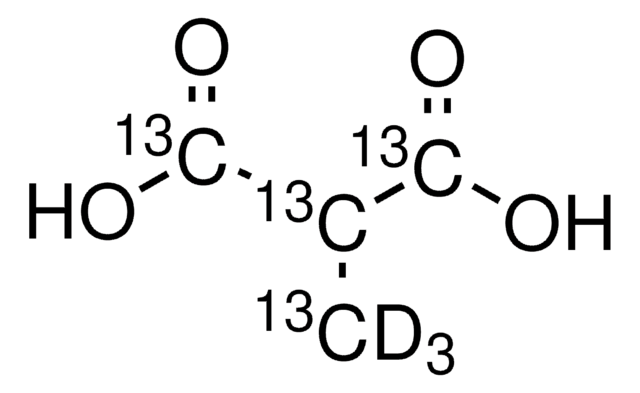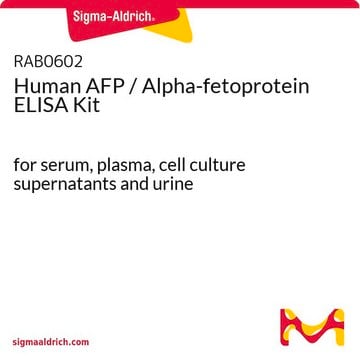M-105
Methyl-D3-malonic acid solution
1.0 mg/mL in acetonitrile, ampule of 1 mL, certified reference material, Cerilliant®
About This Item
Recommended Products
grade
certified reference material
Quality Level
form
liquid
feature
Snap-N-Spike®/Snap-N-Shoot®
packaging
ampule of 1 mL
manufacturer/tradename
Cerilliant®
concentration
1.0 mg/mL in acetonitrile
technique(s)
gas chromatography (GC): suitable
liquid chromatography (LC): suitable
application(s)
clinical testing
pharmaceutical (small molecule)
format
single component solution
storage temp.
−20°C
SMILES string
[2H]C([2H])([2H])C(C(O)=O)C(O)=O
InChI
1S/C4H6O4/c1-2(3(5)6)4(7)8/h2H,1H3,(H,5,6)(H,7,8)/i1D3
InChI key
ZIYVHBGGAOATLY-FIBGUPNXSA-N
General description
Application
- Assessment of Vitamin B-12 Status: Methyl-D3-malonic acid, as a deuterated derivative of malonic acid, was highlighted for its application in quantifying vitamin B-12 status using dried blood spots. This method provides a stable, precise measure and is useful in nutritional research and clinical diagnostics (Schroder et al., 2014).
- Improvement of Analytical Methods: Methyl-D3-malonic acid was used in a gas chromatography-mass spectrometry (GC-MS) technique to quantify methylmalonic acid in serum. This application underlines its role in improving diagnostic assays by offering enhanced precision and reliability in biochemical measurements (Straczek et al., 1993).
Legal Information
related product
Signal Word
Danger
Hazard Statements
Precautionary Statements
Hazard Classifications
Acute Tox. 4 Dermal - Acute Tox. 4 Inhalation - Acute Tox. 4 Oral - Eye Irrit. 2 - Flam. Liq. 2
Storage Class Code
3 - Flammable liquids
WGK
WGK 2
Flash Point(F)
35.6 °F - closed cup
Flash Point(C)
2 °C - closed cup
Certificates of Analysis (COA)
Search for Certificates of Analysis (COA) by entering the products Lot/Batch Number. Lot and Batch Numbers can be found on a product’s label following the words ‘Lot’ or ‘Batch’.
Already Own This Product?
Find documentation for the products that you have recently purchased in the Document Library.
Customers Also Viewed
Our team of scientists has experience in all areas of research including Life Science, Material Science, Chemical Synthesis, Chromatography, Analytical and many others.
Contact Technical Service











